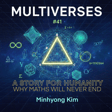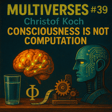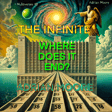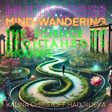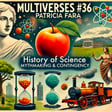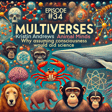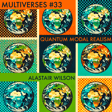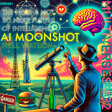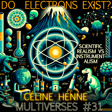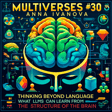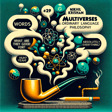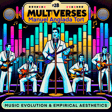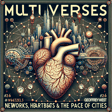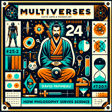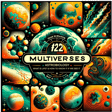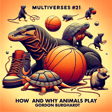
27| Why Knowledge is Not Enough — Jessie Munton
If all my beliefs are correct, could I still be prejudiced?
Philosophers have spent a lot of time thinking about knowledge. But their efforts have focussed on only certain questions. What makes it such that a person knows something? What styles of inquiry deliver knowledge?
Jessie Munton is a philosopher at the University of Cambridge. She is one of several people broadening the scope of epistemology to ask: what sort of things do we (and should we) inquire about and how should we arrange our beliefs once we have them?
Her lens on this is in terms of salience structures. These describe the features and beliefs that an individual is likely to pay attention to in a situation. They are networks that depend on the physical, social, and mental worlds.
In a supermarket aisle, what is salient to me depends both on how products are arranged and my food preferences. Very central nodes in my salience structure (for example this podcast) might be awkwardly linked to many things (multigrain rice ... multiverses).
This is a rare and wonderful thing. Philosophy that is at once interesting and useful.
Links
- Jessie's home page: https://jessiemunton.wixsite.com/philosophy
- Jessie on X: https://twitter.com/alabalawhiskey
- Multiverses home: https://multiverses.xyz
Chapters
(04:20) Welcome and Introduction to the Discussion
(04:53) Exploring the Essence of Epistemology
(06:31) Expanding the Boundaries of Traditional Epistemology
(10:50) Understanding vs. Knowledge: Diving Deeper into Epistemology
(12:42) The Role of Evidence and Justification in Beliefs
(23:59) Salience Structures: A New Perspective on Information Processing
(34:22) Applying Network Science to Understand Salience Structures
(43:41) Exploring Social Salience Structures and the Impact of Cities
(48:15) Exploring the Complexity of Attention and Salience
(48:30) The Challenge of Modeling Attention Mathematically
(48:57) Linking Attention to Real-world Outcomes
(50:01) Differentiating Causes of Attention and Their Impacts
(50:53) The Role of Individual and Social Responsibility in Shaping Attention
(52:19) Influence of Media and Technology on Salience Structures
(55:44) The Potential of Augmented Reality and Large Language Models
(00:47) The Personalization Dilemma of Search Engines and Social Media
(01:05:38) Exploring the Ethical and Practical Implications of Information Access
(01:22:53) Concluding Thoughts on Salience and Information Consumption
